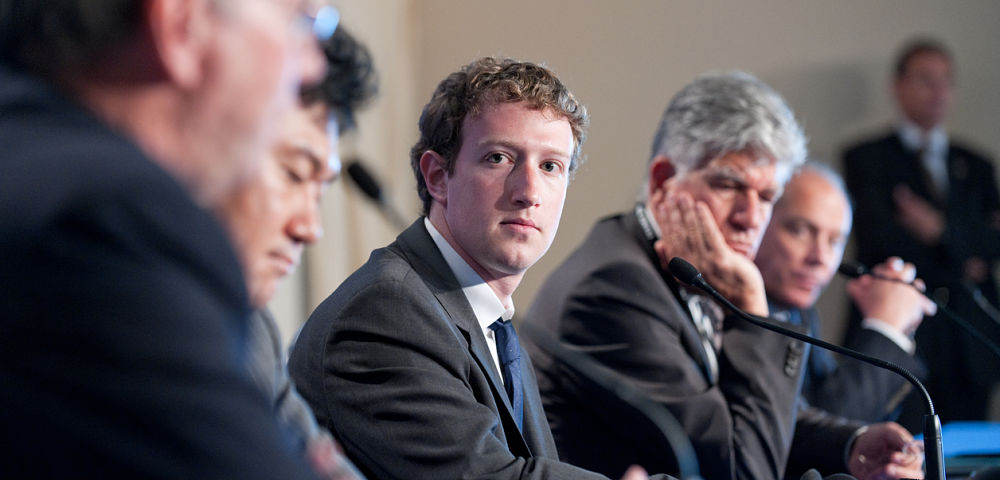Technology companies like to talk about the huge benign changes their products will bring about. Take
Such statements demonstrate the scale of ambition that is the norm among technology’s largest companies. It is rare, however, to find much time or effort dedicated to the unplanned consequences of world-beating new technologies.
There are exceptions. When Google acquired the
But sometimes, huge upheavals arise from products and features that were not intended to alter the course of world events. Take Facebook’s decision, in 2017, to test whether putting news stories in a separate section from the – now ironically named – news feed would increase user engagement. In doing so, the company may have critically injured the independent media ecosystems of some of the developing democracies, such as
But that pales in comparison to the accusation that
Now, Facebook is trying to avoid a repetition of that sort of event, as well as get out ahead of negative news stories like the
But you don’t need to sit inside Facebook’s cavernous
Security researcher Inti De Ceukelaire has a record for spotting problems that
“Facebook never temporarily blocked nametests.com until the issue was fixed, which took about two months,” he said. But “when I launched a privacy awareness April Fools’ gag, it got blocked within a couple of hours, and later all domains associated with me got banned from Facebook.” Similarly, he warns that select partners “have special data access privileges [that] help establish Facebook’s monopoly even more: it’s not up to them to decide who’s getting data access and who’s not”.
Thomas Husson, a principal analyst at
Concern over facial recognition is shared by Privacy International ’s Frederike Kaltheuner, who warns that when companies do worry about the ramifications of the tech, they tend to think too small. “It is a problem that systems reflect the bias in data and societies. Ubiquitous facial recognition will lead to mass street-level surveillance that will disproportionately harm people who already face daily discrimination. Civil society and others must continue to fight mass facial-recognition systems being deployed within CCTV cameras.”
For Kaltheuner, the elephant in the room is the sector’s business model. “We have a problem when data exploitation is the business model. We’re choosing our words carefully here – it’s not about the fact that products and services need data to function. The problem is when products and services become the pretext for unprecedented data mining.”
The biggest risk for the sector, however, is probably the very problem that has sparked Facebook’s current bout of introspection: trust. “You can’t trust a company’s PR team, especially if that company failed to protect the data of its millions of users,” De Ceukelaire argues. “We are making steps in the right direction, but it’s well overdue. It needs to go faster, be more transparent and with less PR blabber. This doesn’t only apply for
In more measured tones, Forrester’s Husson makes much the same point. “Given
Trust is a particularly important resource, because it’s also lacking in
An investigations team is obviously a good way to win back trust. Perhaps a suspiciously good way. Aral Balkan, privacy campaigner and cyborg rights activist, refuses to give credence to the “damage limitation and PR exercise” that
“What we have here is a factory farm for human beings, that has been publicly humiliated for how it treats its livestock, running internal audits to avoid future PR disasters,” Balkan says. Asked what he would highlight if he found himself on a similar team, he demurs: “I wouldn’t be on one of those teams to begin with as I have no desire to help a surveillance capitalist improve its public relations. I have every intention, on the other hand, of ensuring that its abuses are effectively regulated and in helping create ethical alternatives to it.”
The real measure of the team won’t be in the problems they spot, however, but in the power they have to alter the company’s plans to avoid those minefields – even if ploughing straight on may be the most profitable course of action. If the IOT does its job well, we’ll never hear about it again. For
Academic initiatives to study the unintended consequences of technology
The Centre for the Study of Existential Risk
A research centre within Crassh (Centre for Research in the Arts, Social Sciences and Humanities) at Cambridge University, dedicated to “the study and mitigation of risks that could lead to human extinction or civilisational collapse”.
Founded in 2012 by Martin Rees, the astronomer royal; Huw Price, the Bertrand Russell professor of philosophy; and Jaan Tallinn, co-founder of Skype.
Future of Humanity Institute
Founded in 2005, Oxford University’s research institute aims “to bring the tools of mathematics, philosophy, social sciences and science to bear on big-picture questions about humanity and its prospects”.
Its founder and director, the Swedish philosopher Nick Bostrom, also leads the Strategic Artificial Intelligence Research Centre and is the author of the New York Times bestseller Superintelligence: Paths, Dangers, Strategies.
Berkeley Existential Risk Initiative
Beri’s mission is “to improve human civilisation’s long-term prospects for survival and flourishing”. Established in




